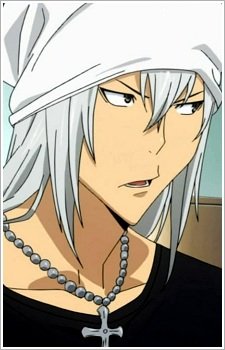Series & First Appearance
Shinta Fukuda is a character from the manga and anime series Bakuman, created by Tsugumi Ohba and Takeshi Obata, who are also known for their acclaimed series Death Note. Fukuda made his debut in Chapter 6 of Bakuman, first published in 2008.
Profile at a Glance
Fukuda is a 19-year-old aspiring manga artist at his first appearance, and he ages to 28 by the series’ end. He serves as a main supporting character and is the founder of Team Fukuda. He is characterized by his competitive nature and his original series, "Kiyoshi Knight," which later evolves into "Road Racer GIRI."
Personality & Motivations
Fukuda is often impulsive and emotionally expressive, driven by a desire to succeed in the manga industry. He is fiercely competitive, thriving on rivalries with other characters like Mashiro Ashirogi and Eiji Niizuma. Despite his somewhat arrogant demeanor, Fukuda is loyal and supportive to his friends, often offering encouragement amidst intense competition. His passion for manga drives his relentless ambition to improve his storytelling and artwork.
Abilities / Powers
Fukuda’s standout skill lies in his storytelling, which is typically well-received despite criticism of his artistic style. His artwork is often described as grotesque, ranking below his peers in drawing capabilities; nonetheless, his plots resonate deeply with readers. As his character evolves, he demonstrates growth in both his artistic abilities and narrative development, successfully serializing his works and adapting to feedback from his editor, Yujiro.
Major Story Arcs & Growth
Throughout Bakuman, Fukuda’s narrative arc follows his journey from being an assistant to Eiji Niizuma to becoming a successful serialized manga artist. Key turning points include:
- The Golden Future Cup: This event sees Fukuda compete with Ashirogi and Nakai, showcasing his talent through "Kiyoshi Knight" and highlighting his competitive spirit.
- Serialization of "Kiyoshi Knight": After winning enough acclaim, he leaves his assistant role to focus on his work full-time, establishing himself as a formidable rival in the industry.
- Transition to "Road Racer GIRI": Dissatisfied with his previous work, he begins a new series that initially flourishes, leading to significant opportunities, including an anime adaptation proposal. This transition marks a pivotal evolution in his character arc as he learns about the industry’s demands and fan preferences.
Notable Relationships
Fukuda shares complex relationships with several key characters in Bakuman:
- Mashiro Ashirogi: As a fellow manga artist and rival, Fukuda’s competitiveness is often seen not just as rivalry but also as a form of camaraderie.
- Eiji Niizuma: As Fukuda’s mentor during his early days as an assistant, Niizuma influences Fukuda’s artistic development. Their relationship represents Fukuda’s aspiration to reach similar heights in his career.
- Nakai: Another rival, contributing to Fukuda’s competitive drive, his interactions with Nakai often emphasize themes of friendship in rivalry.
Iconic Moments & Quotes
One memorable moment occurs when Fukuda, reflecting on the critical response to his work during the Love Fest, exclaims his frustration after placing second to last in the contest. This moment is emblematic of Fukuda’s passion and intense emotional investment in his career (Chapter 118). Another powerful quote comes from his acknowledgment of gratitude towards Yujiro after receiving an anime adaptation offer, showcasing his growth from a brash artist to a more mature individual ready to embrace opportunities.
Trivia & Behind-the-Scenes
Fukuda has become a fan-favorite, evidenced by his inclusion in lists of member favorites, accumulating over 342 fans. In the Bakuman popularity polls, he often ranks favorably among secondary characters, reflecting his impact on the audience. Notably, the complexity of his character is underscored by the art style of Obata, whose dynamic illustrations can accentuate Fukuda’s emotional states. In Japan, his character resonates well with aspiring creators, representing the trials and tribulations faced in the manga industry. Voice actor Takahiro Mizushima brings Fukuda to life in the anime adaptation, capturing his fluctuating emotions and competitive spirit.
In conclusion, Shinta Fukuda stands as an emblematic figure in Bakuman, embodying both the aspirations and struggles faced by many within the creative industry, making him a multi-dimensional character revered by fans.







